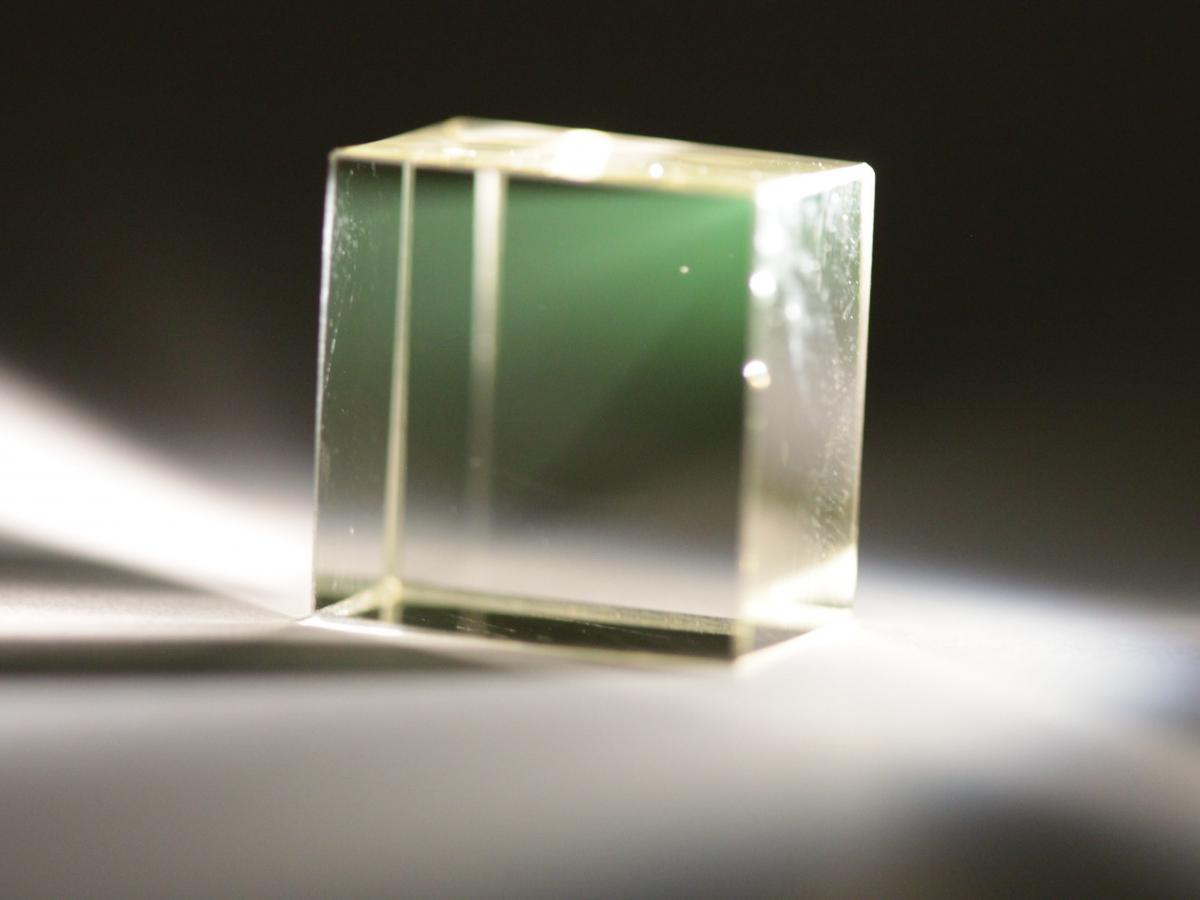Partnership focuses on cutting-edge glass technology
The University of Adelaide’s Institute for Photonics and Advanced Sensing (IPAS) has partnered with The Coretec Group, Inc. to develop a glass to be used in the US company’s CSpace, a 3D static volumetric display technology. This project will be jointly funded by the University of Adelaide.

Glass developed by IPAS for the image chamber of Coretec’s CSpace 3D volumetric display. Image: University of Adelaide.
CSpace is being developed to produce 360-degree viewable, high-resolution, colour images.
It is intended for use in government and industrial applications such as air traffic control, medical imaging, automotive and aerospace design, geological visualisation, weather visualisation, defence space visualisation, and cargo/baggage/people scanning applications.
“IPAS will use its world-leading expertise in the field of applied glass science and photonics to examine alternative low-phonon energy glasses such as tellurite and germanate glasses that have a greater potential for large-scale manufacturing.Professor Heike Ebendorff-Heidepriem
The University of Adelaide’s Professor Heike Ebendorff-Heidepriem, Deputy Director of the Institute for Photonics and Advanced Sensing (IPAS) and Director of the Optofab Adelaide Hub at the Australian National Fabrication Facility (ANFF) will lead the research.
Professor Ebendorff-Heidepriem is one of the world’s foremost researchers working on the development of new optical glasses and fibres, new techniques used to alter the surface of glass, and new sensing approaches.
“Previous work in volumetric 3D displays has examined the use of low-phonon energy fluoride glasses such as ZBLAN, however these glasses have been severely limited by the difficulty in producing them in large sizes and high quality,” she said.
“IPAS will use its world-leading expertise in the field of applied glass science and photonics to examine alternative low-phonon energy glasses such as tellurite and germanate glasses that have a greater potential for large-scale manufacturing.
The development of these new glasses will be led by Dr Yunle Wei, who is a glass scientist in Professor Ebendorff-Heidepriem’s team. The project will tailor make glass for volumetric display technology which when used in the C-Space image chamber could lead to a broader range of applications for the C-Space.
Professor Nelson Tansu, Head of School of Electrical and Electronic Engineering (EEE) at the University of Adelaide, will lead the engineering and design of the integration technology of the laser scan system in this program.
“We will bring experts from IPAS, the School of Physical Sciences, and the School of Electrical and Electronic Engineering to collaborate with our industrial partner Coretec. Our University’s interdisciplinary team will work together with the Coretec team to accelerate the translational research and commercialisation of high-performance and affordable 3D tabletop displays to the marketplace,” he said.
Matthew Kappers is CEO at The Coretec Group.
“In order to develop new glasses for an image chamber, we rely on experts like Professor Ebendorff-Heidepriem and her team who have the scientific expertise and the experience to generate alternative glasses to continue our improvements in our 3D volumetric display,” he said.
This story was originally published on the University of Adelaide newsroom.
